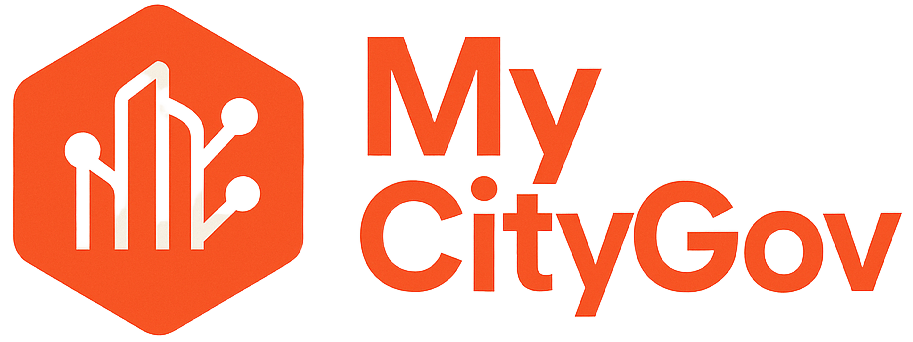What Is a Public Record? Why It Matters More Than You Think
Behind Every Decision, There’s a Record
Imagine your city approves a $1.2 million road improvement project. You’re curious—why that street? Who decided that? How were contractors chosen? These aren’t just passing thoughts. They’re real questions, and the answers exist—buried in documents, emails, meeting minutes, and digital archives known collectively as public records.
But here’s the issue: most citizens don’t realize they have a right to see them.
Public records form the foundation of government transparency. They tell the story behind every decision that affects your street, your taxes, your safety. When accessible and well-maintained, they empower residents to ask informed questions, challenge inconsistencies, and hold elected officials accountable.
So, What Exactly Is a Public Record?
A public record is any material—digital or physical—that documents the conduct of public business. These records are created, sent, or received by government agencies in the course of their duties.
That means your city’s permit approval emails? Public record. A video recording of the last city council meeting? Also public record. The building inspection report from three months ago? You guessed it.
And it’s not just paper documents anymore. With today’s communication tools, the definition has expanded to include text messages, social media posts, virtual meeting transcripts, and cloud-based files.
If a record helps explain what your government is doing or deciding, it likely belongs in the public domain.
Transparency Builds Trust
Governments don’t operate in a vacuum. Whether it’s a small town or a large metropolitan agency, public trust is essential—and trust is earned through transparency.
Access to public records offers a front-row seat to how decisions are made. It reveals how tax dollars are spent, what priorities are being pursued, and whether policies are being enforced fairly. For journalists and watchdog groups, records offer a paper trail for investigations. For citizens, they serve as evidence of whether promises are being kept.
The power of public records isn’t theoretical—it’s practical. A zoning change that impacts your neighborhood. A police report. A long-forgotten environmental study. These aren’t relics in an archive; they’re tools that help citizens understand and influence their communities.
But Not Everything Is Public
Of course, access comes with limits. Not every document sitting in a government office is fair game.
Laws in every state—and at the federal level—draw clear boundaries around what can and can’t be disclosed. Some exemptions exist to protect personal privacy, law enforcement activity, or national security.
For example, you can’t request someone else’s medical records or demand documents from an ongoing criminal investigation. Similarly, internal personnel evaluations, trade secrets submitted by private companies, or emergency response plans may be shielded from disclosure for good reason.
Still, those boundaries shouldn’t be barriers. The presumption is that information should be public unless there’s a strong reason it shouldn’t be.
Requesting Public Records: A Simple Process
You don’t need legal training to file a public records request. In most places, the process is designed to be simple and open to all.
Start by identifying what you want. The more specific your request, the better the response. For example, instead of saying “all communications about zoning,” you might request “all emails between the planning director and XYZ Developers from January through March.”
Next, locate the agency responsible for the record. City clerks, planning departments, and law enforcement agencies each manage different files. Many now provide request forms or portals online, making it easy to submit without even picking up the phone.
Once your request is submitted, agencies typically have a legally defined time window—often between 5 and 30 days—to respond. Depending on the request, they may deliver the documents, ask for clarification, apply redactions, or deny access (with reasons cited).
Are There Fees? Sometimes.
Public records are a right—but in some cases, exercising that right may come with a cost.
Agencies may charge nominal fees to cover the time spent locating files, redacting sensitive information, or copying documents. These fees vary based on jurisdiction and complexity. If your request is broad or includes multimedia like video, expect a higher quote.
However, fee waivers are often available—especially for journalists, nonprofits, and members of the public making a request in the interest of transparency. Always ask.
From Paper to Pixels: The Rise of Digital Records
It’s no secret that government has gone digital. Emails have replaced memos. Zoom meetings have replaced conference rooms. And that shift has completely changed what qualifies as a record.
A city’s Facebook post announcing a road closure? That’s a public record. A quick text message between a council member and the city manager about an upcoming vote? Also a public record.
Governments are now being held to higher standards for preserving these records, regardless of format. And citizens are increasingly savvy, requesting everything from GIS maps to exported email threads.
In response, many agencies are adopting digital records management systems that store, sort, and redact files at scale. These platforms also reduce the burden on staff, increase processing speed, and help governments stay compliant with retention laws.
The Power of a Well-Timed Request
Public records are more than dusty archives. They’re powerful tools. They’ve sparked front-page news stories, launched investigations, protected citizens from illegal action, and helped parents, activists, and business owners alike understand how their local governments operate.
Even a single request—smartly written and properly submitted—can change the course of a policy, uncover wasteful spending, or highlight community needs that were being ignored.
Most of all, they remind government officials that their actions, decisions, and communications are visible and subject to scrutiny.
That accountability is democracy at work.
Use the Tools You Already Have
Whether you’re fighting for safer sidewalks, cleaner water, or simply curious about how your city works, the first step is knowing your right to know.
Public records aren’t hidden treasures—they’re public property. Make your voice heard. Ask questions. File the request.
Your government works for you. The records prove it.


